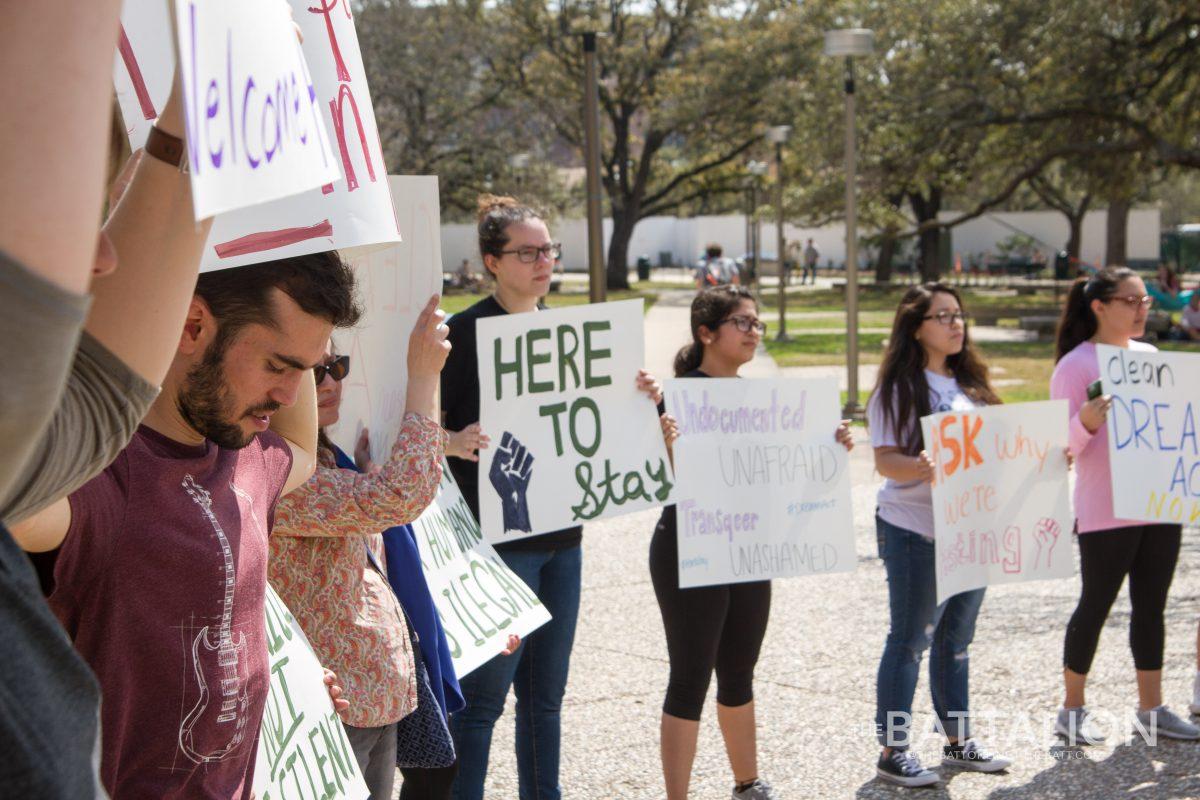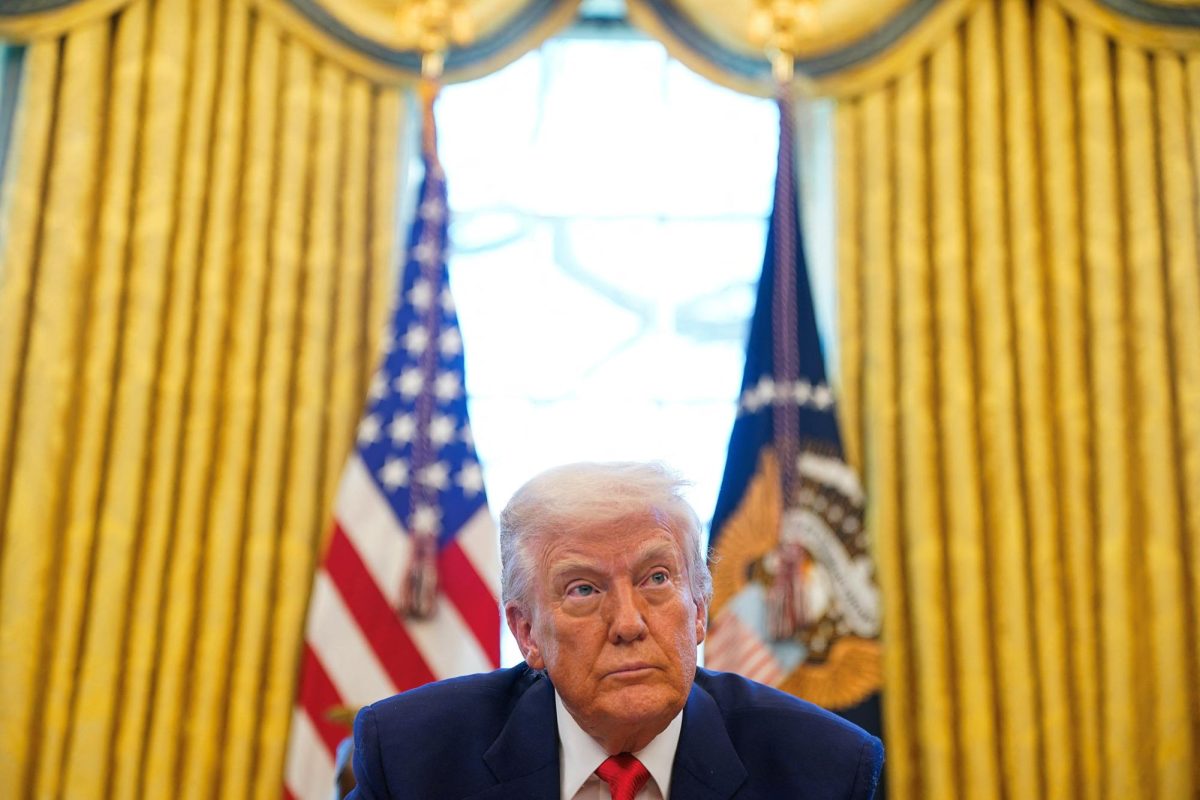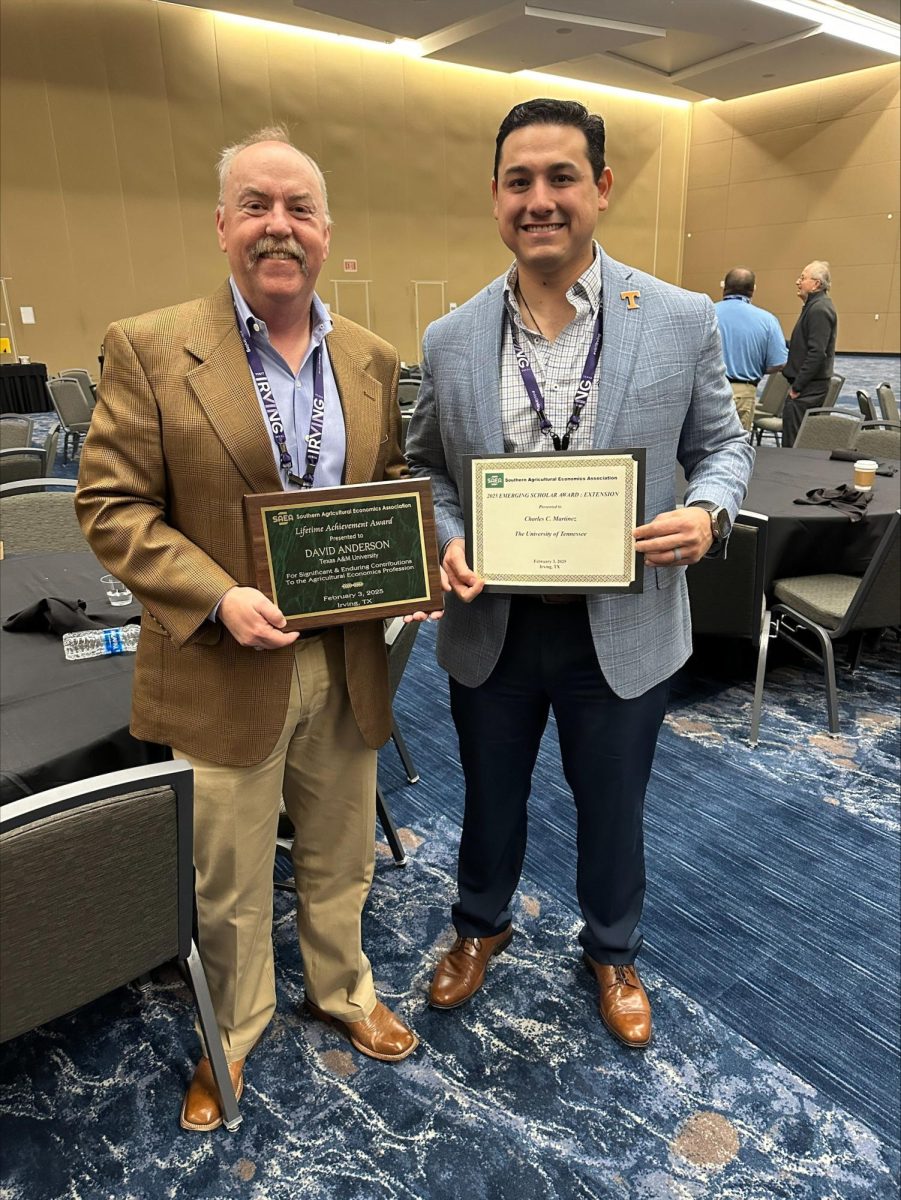“It is our duty to fight for our freedom.” “We have nothing to lose but our chains.” “What do we want? DREAM Act. When do we want it? Now.”
Students and professors chanted, gave speeches on the history of immigration policy and shared personal testimonies in Academic Plaza at Monday’s demonstration in support of a clean DREAM Act — a pathway to legal citizenship for young undocumented residents.
March 5 was the day the Deferred Action for Childhood Arrivals (DACA) program was supposed to officially end following President Donald Trump’s repeal of the program in September 2017. According to Nancy Plankey-Videla, associate professor of sociology, two court injunctions have put this particular date on hold, allowing DACA recipients to continue renewing their permits. March 5 was also the deadline Trump set for Congress to replace DACA with new legislation to protect undocumented immigrants, but no bills have been successfully passed.
Melanie Phillips, English senior, said the protesters aimed to remind people that while the March 5 deadline did not mark any significant changes, there are still problems which need to be solved.
“When DACA was rescinded, Congress was given until March 5 to get some sort of policy passed that would protect undocumented youth and they haven’t done that,” Phillips said. “In that six month time, there has been a lot of pressure and mobilization from undocumented youth and allies and still nothing has been done. In the meantime, the entire undocumented community has been living in fear and uncertainty, not only undocumented youth for themselves and their friends, but families as well.”
Phillips said Monday’s protest was the second action students have taken this week to raise awareness for immigration rights. The first action began on March 1, when three students began fasting.
“Three students started at the very beginning and then we’ve been adding people up until Sunday morning, and now we have 10 total people fasting and that fast will be broken tonight at midnight,” Phillips said. “That’s just to raise awareness for this issue and try to get some attention from the student body and from media because it seems like Congress has sort of moved on, people are starting to move on as well in terms of the news cycle. We want to remind people that there is still an urgent need for protection of undocumented youth.”
During the demonstration, Plankey-Videla gave a speech about the history of immigration policy in the United States. Plankey-Videla said while March 5 did not end up marking the end of DACA, it is still a significant day.
“This is still an important date because there is a lot of undocumented young people, some who have DACA and some who don’t, who are in limbo,” Plankey-Videla said. “It’s important to call attention to all other people in our community that this is an important issue and that we want our politicians to act. We want them to think seriously and responsibly about how to fix this issue.”
Carlo Pizarro, urban and regional planning senior, also spoke during the demonstration, sharing his personal story of when he learned he was undocumented.
“Because of DACA I have been able to accomplish so much,” Pizarro said. “It’s magical. I can’t believe that I am standing here at this university today. I never thought I would be able to receive a higher education but it is thanks to my community, my family and DACA. Now, we need the DREAM Act. We need something for the long term.”
Jennifer Pearson, community health junior, stopped to watch the protest for a few minutes while she was on her way to class.
“I am intensely proud of them for doing this,” Pearson said. “There are lots of people our age who might not know what’s going on as far as the DREAM Act. … People passing through might hear and ask questions and learn information that they might not have known before. Maybe it will affect the way they view people and how they vote, which I am fully in support of.”
Overall, the protest and the fast were done with intention to remind students of the importance of immigration reform, according to Margarita Zollo, political science junior.
“We are doing this to show that there is an urgency to the situation and to convey that urgency,” Zollo said. “A lot of people feel like there’s time and that these extensions mean that there is even more time, when really there was never time to begin with. There was always just a temporary solution and the DREAM Act is our one shot right now to have a permanent sustainable solution.”
Students and professors demonstrate for a clean DREAM Act
March 5, 2018
0
Donate to The Battalion
$2790
$5000
Contributed
Our Goal
Your donation will support the student journalists of Texas A&M University - College Station. Your contribution will allow us to purchase equipment and cover our annual website hosting costs, in addition to paying freelance staffers for their work, travel costs for coverage and more!
More to Discover










